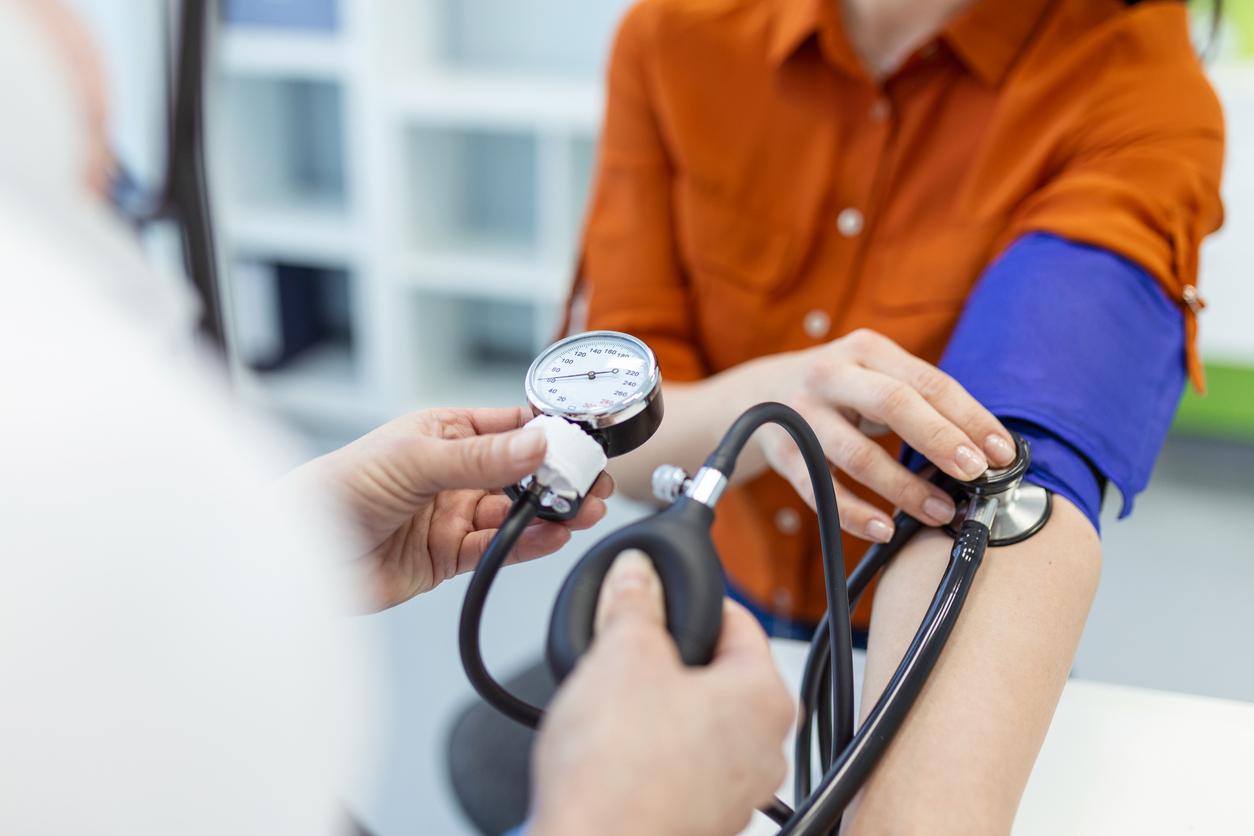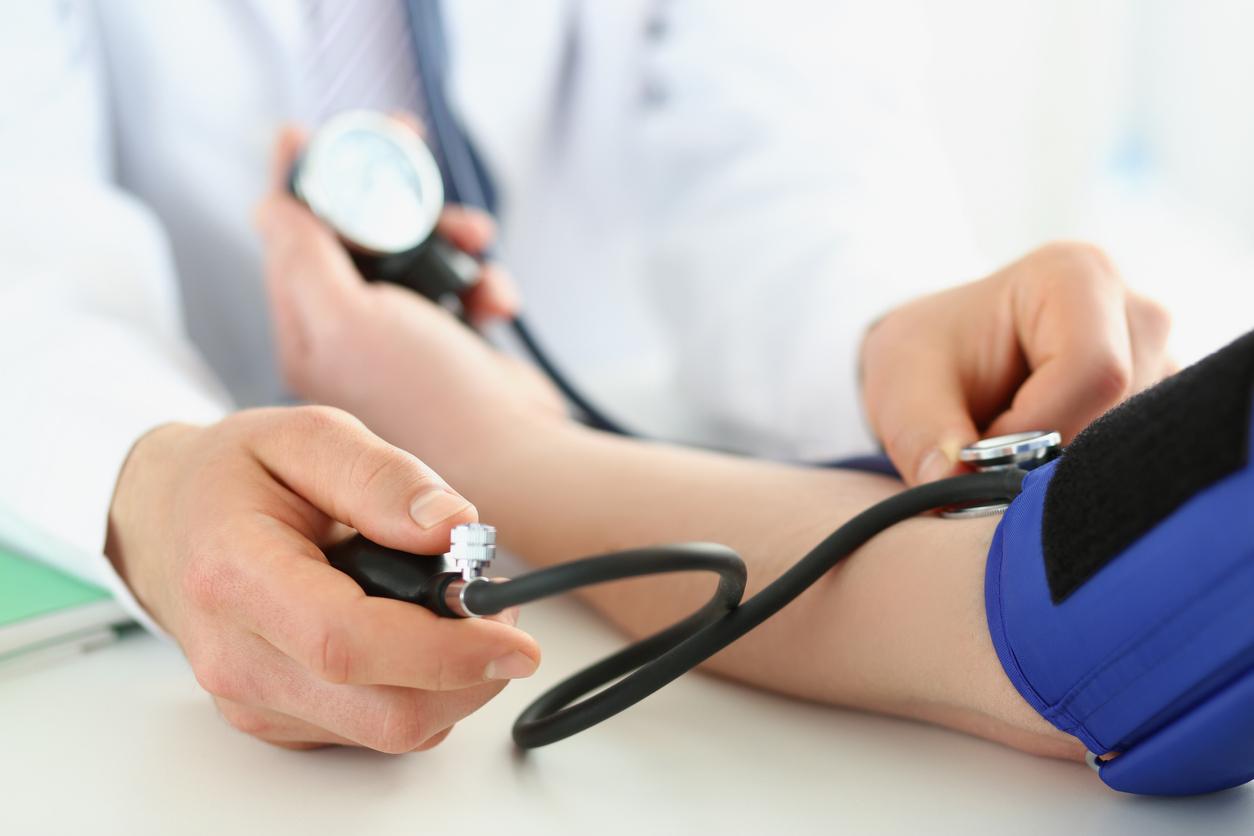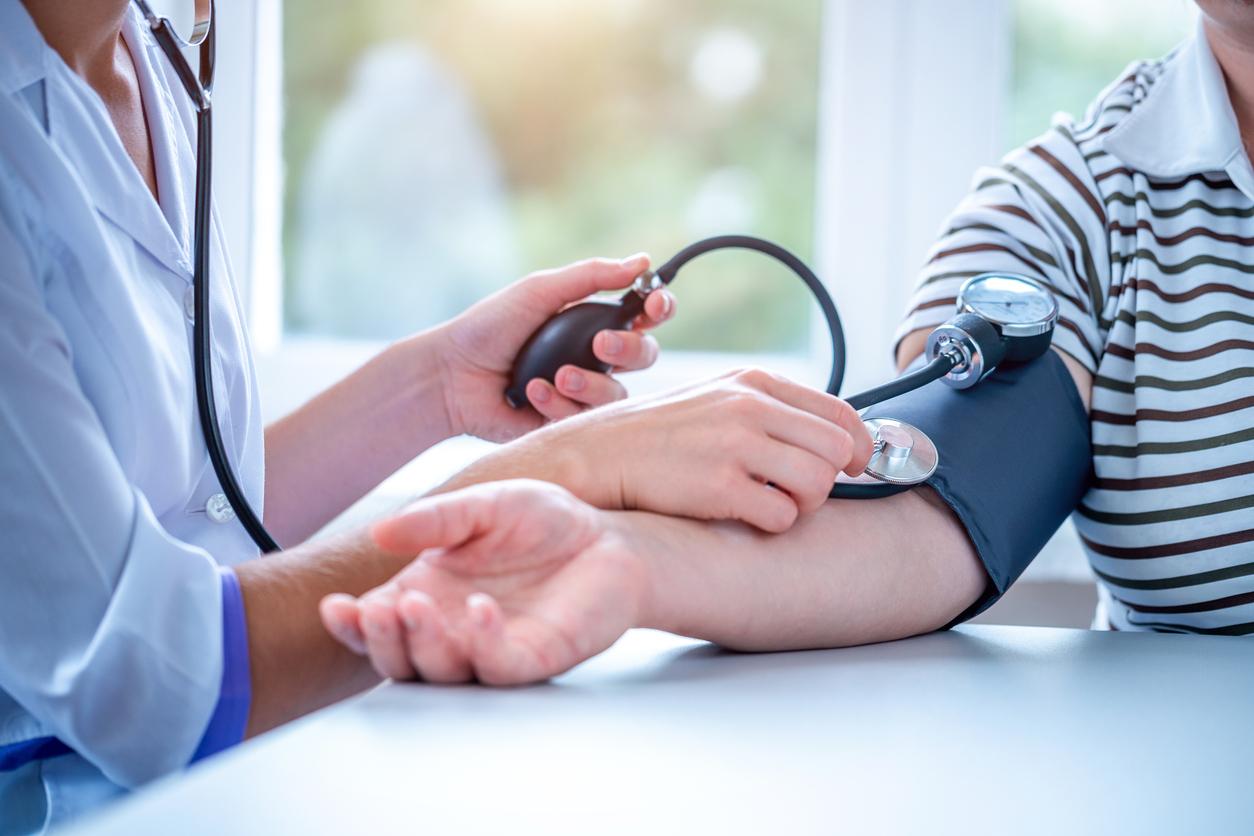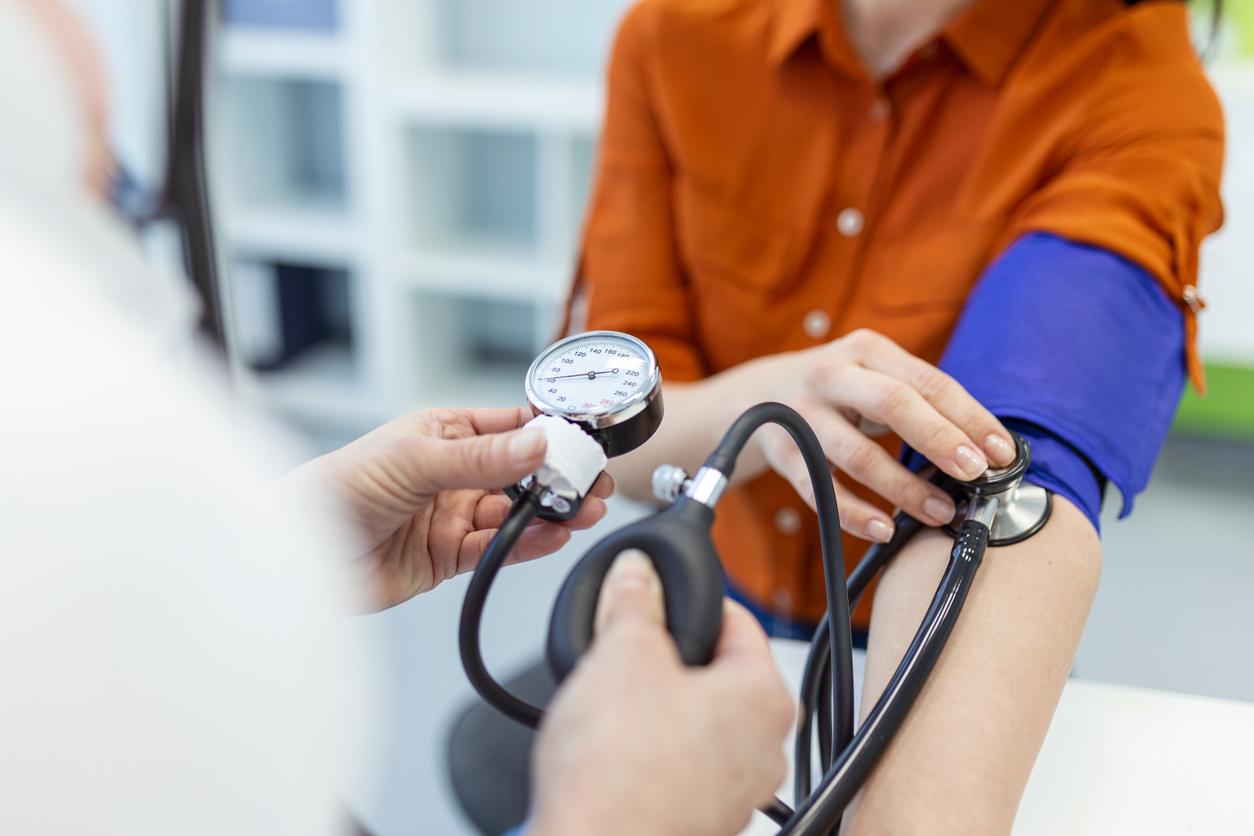On the occasion of hypertension day, specialists warn about the risks of this disease. They rely on self-measurement and consultation of the announcement so that patients can take charge of themselves.
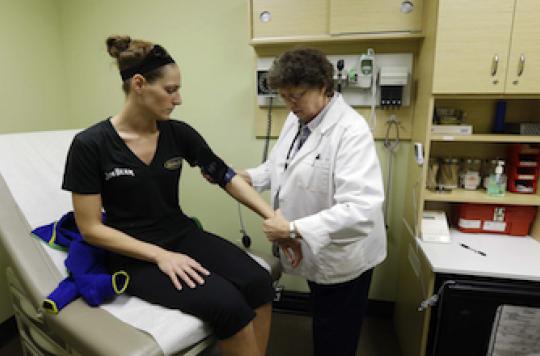
“Barely 2% of hypertensive patients treated carry out the self-measurements necessary to monitor their disease,” worries Dr. Bernard Vaïsse, cardiologist at the Timone hospital in Marseille, and president of the French Committee for the fight against arterial hypertension (CFLHTA). Another worrying figure: barely one in two patients applies hygiene and diet recommendations or takes their treatment to the letter. According to studies carried out by Health Insurance, or cardiology research teams, 50% of hypertensive people who start an antihypertensive drug will have stopped it before the 200e day… Only 49% of patients apply themselves to reducing their weight, and 52% practice physical activity on a daily basis.
Hypertensive people with little awareness of the risks
An alarming observation made by specialists on the occasion of the national hypertension day which takes place this Tuesday. They therefore want to encourage patients to be real players in consultations with doctors. “Patients do not always realize the risk of complications, and hypertension affects the brain, heart and kidneys… warns the Marseille cardiologist. It was ranked second, just after smoking, by the World Health Organization on the list of factors decreasing the number of healthy years of life. The pity is that blood pressure can be well controlled with physical activity, good nutrition, and medication. “
Listen to Dr Bernard Vaïsse, president of the French committee for the fight against hypertension. ” The real problem is to be aware of this silent disease. “
To remedy these problems of compliance and adherence to treatments, the French Committee for the fight against hypertension wants doctors, 80% of general practitioners, and their patients to take time during the first consultation of the announcement. “Advisory consultations have been set up for cancer, HIV … the same thing is needed for hypertension, the doctor and the patient must have time to establish the therapeutic strategy, to fully understand the risks. and how to avoid them. All patient surveys show that they lack information: a majority of them do not know the cause or causes of their hypertension, or do not have their latest blood pressure figures in mind. ”
Self-measurement devices available to doctors
The CFLHTA therefore pleads for the establishment of consultation consultations and consultations to adapt the treatment. And the Committee in agreement with the Ministry of Health has set a target: 70% of hypertensive patients with blood pressure under control in 2015. For its part, health insurance has taken an initiative to promote self-measurement. For 2014, she ordered self-measuring devices that city doctors can make available to their hypertensive patients so that they can experiment with self-measurement of their blood pressure.
Health insurance thus wishes to equip all city doctors who so wish within three years. Next January, volunteer doctors from four departments (Aube, Aude, Isère and Tarn) will be able to benefit from this measure. They will thus be able to explain to the patient the sacrosanct rule of self-measurement, “the rule of three”: three measures during the month preceding the consultation with the doctor, three measures in the morning after breakfast, three measures in the evening. after dinner.
Listen to Dr Bernard Vaïsse : “The rule of three applied to self-measurement “
If the patient does not wish to take this self-measurement, his practitioner can offer him a blood pressure holter, an electrical medical device that allows measurements to be taken automatically for a certain time. The device worn directly by the patient takes blood pressure every 15 or 30 minutes for 24 hours.
Other tools help awareness and better control of the disease: specialized hypertension centers have developed a questionnaire to prepare for the consultation. Thus, the hypertension unit of the Georges-Pompidou European Hospital (AP-HP) has designed a patient questionnaire to prepare for the hypertension consultation, called HY-Quest. This questionnaire, which includes no less than 133 questions, is completed by the patient at his home and then brought to the consultation to be taken into account by the doctor.
133 questions to prepare for the consultation
“The principle is to complete the questionnaire at home so that the patient has the necessary and sufficient time to answer the questions, so that he can copy his previous prescriptions and possibly get help from a loved one,” explains Dr Nicolas Postel-Vinay. hypertensiologist at HEGP (AP-HP). The use of Hy-Quest helps to structure the questioning of the patient in order to limit omissions in personal and family history, lifestyle, intolerance to treatment, additional examinations and ongoing treatments. It allows us to free up time for a personalized dialogue with the patient on their history, their treatment plan or their level of information. ”A recent study has shown that this tool has been well accepted by patients and that the concordance of the patient’s responses with that of the doctor is good. The patients showed strong motivation, only 10% of them forgot to bring their questionnaire to the consultation.
.








